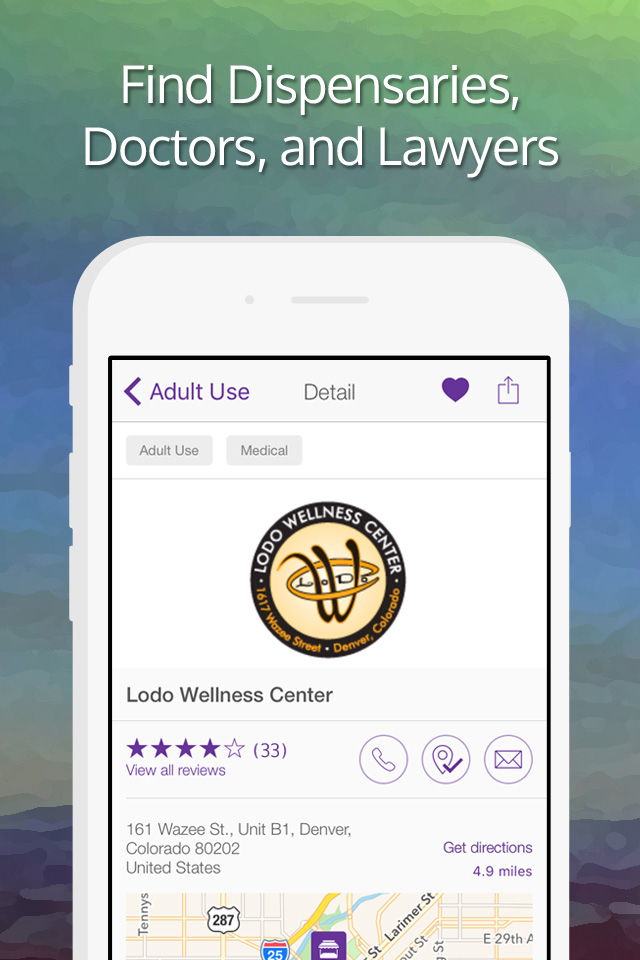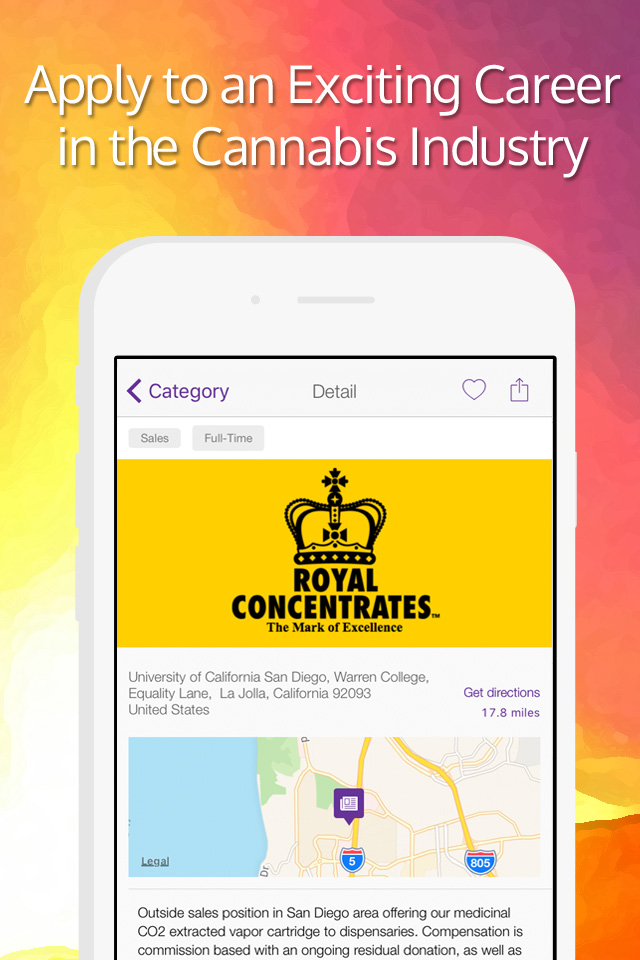
Qualifying for Marijuana Industry Jobs: Marijuana Job Qualifications Explained
In order to thrive in America’s booming cannabis industry, it’s important to understand the key qualifications required for marijuana jobs. This article will provide an overview of the qualifications needed to pursue a career in the marijuana industry, including information on licensing, age requirements, and specific skills and experience.
Key Takeaways:
- Understanding the qualifications needed for marijuana jobs is crucial for success in the cannabis industry.
- Licensing, age requirements, and specific skills and experience are important factors to consider when pursuing a career in the marijuana industry.
- State-specific requirements, such as obtaining a license from the District’s Alcoholic Beverage Regulation Administration in Washington, DC, should be researched and adhered to.
- Temporary jobs can serve as a gateway to a career in cannabis, allowing individuals to gain experience and make connections in the industry.
- Crafting a tailored resume for the cannabis industry and demonstrating adaptability are key to standing out in the job market.
Qualifications for Marijuana Jobs in Washington, DC
Working in the marijuana industry in Washington, DC requires individuals to meet specific qualifications and obtain a license from the District’s Alcoholic Beverage Regulation Administration (ABRA). Let’s take a closer look at the requirements for marijuana jobs in the nation’s capital.
To apply for a license, individuals must have an existing position at a licensed cannabis facility. This means that you need to secure a job offer from a company that already holds a license to operate in the DC cannabis industry. Once you have a job offer, you can proceed with the application process.
| Qualification | Requirement |
|---|---|
| Background check | No drug-related convictions |
| Financial obligations | Owe no more than $100 in fines or penalties to the District government |
| Application fee | $75 |
Additionally, applicants must complete the ABRA Marijuana Facility Employee License Application and submit it along with the required fee. The application form requires personal information, employment details, and disclosure of any past criminal records related to drug offenses. It’s essential to be truthful and transparent throughout the application process.
By meeting these qualifications and obtaining the necessary license, individuals can pursue a rewarding career in the cannabis industry in Washington, DC. The regulated nature of the industry ensures that qualified professionals can contribute to the growth and success of the local cannabis market.
New York State Cannabis Industry Career Paths
The cannabis industry in New York State is poised to create numerous job opportunities across various sectors. From cultivation and processing to retail sales and ancillary roles, the seed-to-sale lifecycle of cannabis presents diverse career paths for individuals interested in entering this rapidly expanding field. Here, we explore some of the different career paths available in the New York cannabis industry.
Horticulture and Cultivation
One of the key career paths in the New York cannabis industry is horticulture and cultivation. This involves the cultivation and management of cannabis plants, ensuring optimal growth and quality. Roles within this sector include cultivation assistant, where individuals assist in the day-to-day operations of a cultivation facility, and trimmer, responsible for trimming and manicuring cannabis plants.
Processing and Extraction
Another career path in the New York cannabis industry is processing and extraction. Within this sector, individuals work with cannabis extracts and derivatives to create various products such as oils, edibles, and concentrates. Roles include extraction assistant, responsible for assisting in the extraction process, and infusion assistant, involved in the creation of infused products.
Retail and Sales
Retail and sales play a crucial role in the distribution and accessibility of cannabis products. This career path involves working in dispensaries and retail establishments, where individuals assist and educate customers on different cannabis products. Positions within this sector include dispensary sales associate, responsible for providing personalized customer service and product recommendations.
| Career Path | Potential Roles |
|---|---|
| Horticulture and Cultivation | Cultivation Assistant, Trimmer |
| Processing and Extraction | Extraction Assistant, Infusion Assistant |
| Retail and Sales | Dispensary Sales Associate |
These are just a few examples of the career paths available in the New York cannabis industry. It’s important to note that specific job titles and roles may vary depending on the license type and individual businesses. As the industry continues to evolve and grow, new opportunities may emerge, providing even more career options for those interested in entering the field.

Temporary Jobs as a Gateway to a Career in Cannabis
For individuals looking to start a career in the cannabis industry, temporary jobs can serve as an excellent entry point. These positions offer valuable opportunities to gain hands-on experience and make connections within the industry. Whether you’re interested in cultivation, sales, or distribution, there are various entry-level cannabis positions available that can help you get your foot in the door.
One common temporary job in the cannabis industry is that of a budtender. As a budtender, you’ll work in a dispensary, assisting customers with their purchases and providing them with information on different strains of cannabis and their effects. This role allows you to learn about different cannabis products and develop a deep understanding of the industry.
Another temporary position worth considering is that of a trimmer. Trimmers work in cultivation facilities, where they are responsible for trimming and manicuring cannabis plants. Although it can be physically demanding work, trimming provides valuable insight into the cultivation process and allows you to develop essential skills.
Temporary positions like these can be stepping stones to more permanent careers in the cannabis industry. They provide an opportunity to learn about the industry, gain practical experience, and determine which aspect of the industry interests you the most. Additionally, temporary jobs offer the chance to network with industry professionals who may be able to provide guidance and open doors to future opportunities.

Benefits of Temporary Jobs in the Cannabis Industry
- Entry-level opportunities: Temporary positions allow individuals without prior experience to enter the cannabis industry.
- Hands-on experience: Temporary jobs provide valuable hands-on experience and a deeper understanding of the industry.
- Networking opportunities: Temporary roles offer the chance to connect with industry professionals and establish valuable relationships.
- Career exploration: Temporary positions help individuals explore different roles and determine their career path in the cannabis industry.
Crafting a Resume for the Cannabis Industry: Tips and Tricks
When it comes to applying for jobs in the cannabis industry, crafting a well-written and professional resume is essential. Your resume is your opportunity to showcase your skills, experience, and passion for the marijuana field. Keep in mind that the cannabis industry is still relatively new, so employers may have different expectations compared to other industries. Here are some tips and tricks to help you create a standout resume tailored for the cannabis industry:
1. Highlight your relevant experience and skills
Start by creating a section that focuses on your experience and skills that are directly relevant to the cannabis industry. This can include any previous work experience in dispensaries, cannabis cultivation, or related fields. Be sure to emphasize any transferable skills that would be valuable in the industry, such as customer service, inventory management, or regulatory compliance.
2. Quantify your successes and achievements
One way to make your resume stand out is by quantifying your successes and achievements in your previous roles. For example, if you were responsible for increasing sales or improving operational efficiency, provide specific numbers or percentages to demonstrate your impact. This will show potential employers that you have a track record of delivering results.
3. Tailor your resume to the job you’re applying for
It’s important to tailor your resume to each specific job you’re applying for in the cannabis industry. Take the time to carefully review the job description and incorporate relevant keywords and skills into your resume. This will show employers that you’ve done your research and are genuinely interested in the position. Also, be sure to highlight any knowledge or experience you have with specific cannabis products or strains.
With these tips in mind, you can craft a resume that will impress employers in the cannabis industry. Remember to keep your resume professional, concise, and easy to read. By showcasing your relevant experience, quantifying your achievements, and tailoring your resume to each job application, you’ll increase your chances of landing your dream job in the marijuana industry.

Researching State Laws: Essential for Cannabis Job Candidates
When it comes to pursuing a career in the cannabis industry, knowledge of state laws and regulations is crucial. Each state has its own specific requirements and certifications for working in the cannabis field, and it’s important for job candidates to thoroughly research and understand these regulations. By doing so, individuals can ensure they have the necessary qualifications and meet all the legal requirements for their desired position.
From obtaining state badges to completing specific training courses, understanding and adhering to state laws is essential for success in the cannabis industry. For example, some states may require individuals to obtain a cannabis worker license or identification badge before they can work in a licensed facility. Others may have specific age requirements or background check criteria that must be met.
By staying informed about state laws, cannabis job candidates can position themselves as knowledgeable and professional candidates in the eyes of employers. It demonstrates a commitment to compliance and a dedication to understanding the legal landscape of the industry. Additionally, researching state laws allows job candidates to identify any additional certifications or training programs they may need to pursue in order to enhance their qualifications and stand out in a competitive job market.
Table: State Requirements for Cannabis Industry Jobs
| State | Specific Requirements | Key Certifications or Licenses |
|---|---|---|
| California | Minimum age of 21 | Cannabis Worker Permit |
| Colorado | Minimum age of 21 | Occupational License |
| Oregon | Minimum age of 21 | Marijuana Worker Permit |
| Washington | Minimum age of 21 | Medical Marijuana Consultant Certification |
By consulting reliable sources such as state government websites or industry associations, job candidates can gather accurate and up-to-date information on the specific requirements for cannabis jobs in their state. This knowledge allows candidates to confidently pursue opportunities in the cannabis industry and present themselves as qualified professionals who understand and comply with the legal framework that governs the industry.
Adaptability: A Key Skill for Success in the Cannabis Industry
The cannabis industry is a rapidly evolving and dynamic field, constantly impacted by changing laws and regulations. To succeed in this industry, individuals must possess the skill of adaptability, which allows them to quickly adjust to new regulations, industry trends, and shifting business needs. The ability to adapt is particularly crucial given the legal complexities and ever-changing landscape of the marijuana industry.
Adaptability in the cannabis industry goes beyond simply accepting and conforming to change. It requires professionals to actively seek out new knowledge, stay informed about industry developments, and continuously improve their skill sets. This includes staying up-to-date on the latest legislative changes, understanding new licensing requirements, and becoming familiar with emerging technologies and cultivation techniques.
Employers in the cannabis industry highly value candidates who can demonstrate adaptability. They seek individuals who can thrive in an environment that demands flexibility, problem-solving skills, and the ability to embrace change. Adaptability enables professionals to quickly respond to market shifts, identify innovative solutions to challenges, and seize emerging opportunities in the cannabis field. With the industry’s constant evolution, being adaptable ensures professionals can stay ahead of the curve and effectively contribute to the success of their organizations.
Whether it’s adjusting to new compliance standards, navigating unpredictable market conditions, or adopting new best practices, adaptability is a key driver of success in the cannabis industry. By being adaptable, professionals can position themselves as valuable assets to employers, fostering career growth and establishing themselves as leaders in this exciting and ever-evolving field.
The Power of Networking: Making Connections in the Cannabis Industry
Networking plays a crucial role in the cannabis industry, providing professionals with valuable opportunities to build connections and enhance their career prospects. In a rapidly growing industry like cannabis, creating a strong network can open doors to job opportunities, mentorship, and a deeper understanding of the industry landscape.
Attending industry events and meet-ups is one of the most effective ways to network in the cannabis field. These gatherings bring together professionals from various sectors of the industry, providing a platform to exchange ideas, learn from experienced individuals, and forge meaningful connections. Whether it’s a cannabis conference, trade show, or local meet-up, these events offer valuable networking opportunities where you can meet potential employers, industry leaders, and like-minded professionals.
Building a network of contacts in the marijuana industry can lead to numerous benefits. Networking allows you to stay updated on the latest industry trends, regulatory changes, and job openings. It also enables you to gain insights from seasoned professionals and learn from their experiences. By connecting with individuals who have extensive knowledge and expertise in the cannabis field, you can accelerate your learning curve and position yourself for career advancement.
“Networking is not just about exchanging business cards; it’s about building relationships and fostering a sense of community within the cannabis industry. By investing time and effort into networking, you can create a support system of industry professionals who can guide and support you throughout your career journey.”
Key Tips for Effective Networking in the Cannabis Industry
- Be prepared: Before attending networking events, research the attendees and familiarize yourself with the industry trends and news. This preparation will help you engage in meaningful conversations and make a lasting impression.
- Listen and ask questions: Show genuine interest in the person you are networking with by actively listening and asking thoughtful questions. This demonstrates your eagerness to learn and build a mutually beneficial relationship.
- Follow up: After meeting someone at a networking event, make sure to follow up with a personalized email or LinkedIn message. Thank them for their time and express your interest in staying connected. This simple action can help solidify the connection and pave the way for future opportunities.
Remember, networking is an ongoing process, and it requires consistent effort to maintain and expand your network. By actively participating in industry events, engaging with other professionals, and nurturing relationships, you can harness the power of networking to advance your career in the cannabis industry.
Conclusion
In summary, for individuals seeking cannabis industry jobs, it is crucial to understand the key qualifications and requirements. Obtaining the necessary licenses and certifications, meeting age requirements, and possessing specific skills and experience are all essential factors to consider.
Temporary jobs can serve as a gateway into the cannabis industry, enabling individuals to gain valuable experience and establish connections. These entry-level positions can lead to more permanent career opportunities within the field.
Crafting a professional resume tailored to the cannabis industry is essential. Highlighting relevant experience, transferable skills, and knowledge of state laws demonstrates a commitment to the cannabis field.
Finally, networking is a powerful tool for success in the cannabis industry. Building connections, attending industry events, and staying informed about changes in regulations and trends help individuals navigate this rapidly growing field.
By understanding the qualifications, gaining experience, and showcasing relevant skills, aspiring cannabis professionals can position themselves for success in this booming industry.
FAQ
What qualifications are needed for marijuana jobs in the cannabis industry?
To work in the cannabis industry, individuals may need to obtain a license, meet age requirements, and have specific skills and experience. Additionally, each state has its own laws and regulations regarding working in the industry, so it’s important to research and comply with state requirements.
What are the requirements for obtaining a license to work in the cannabis industry in Washington, DC?
In Washington, DC, individuals must obtain a license from the District’s Alcoholic Beverage Regulation Administration. The requirements include having a position at a licensed cannabis facility, submitting a completed application, and paying a fee. Applicants must also meet certain criteria, such as not having a drug-related conviction and not owing fines or penalties to the District of Columbia government.
What are the different career paths available in the New York State cannabis industry?
The cannabis industry in New York State offers various career paths, including cultivation assistant, trimmer, extraction assistant, infusion assistant, and dispensary sales associate. The specific jobs may vary depending on license types and individual businesses.
Are there opportunities for temporary jobs in the cannabis industry?
Yes, temporary jobs such as budtender, trimmer, delivery driver, and warehouse packager are available in the cannabis industry. These roles can provide entry-level opportunities for individuals without prior experience and can serve as a stepping stone to more permanent careers in cannabis.
How should I tailor my resume for the cannabis industry?
When creating a resume for the cannabis industry, it’s important to be professional and highlight any relevant experience and skills. Emphasize transferrable skills, such as customer service or inventory management, and tailor your resume to the specific job you’re applying for. Research the industry and state laws to demonstrate your knowledge and commitment to the cannabis field.
What should job candidates know about state laws and regulations in the cannabis industry?
Each state has its own specific laws and regulations regarding working in the cannabis industry. Job candidates should thoroughly research these laws to ensure they have the necessary certifications and licenses for their desired position. This includes obtaining state badges and completing any required courses or training.
How important is adaptability in the cannabis industry?
Adaptability is a crucial skill for success in the cannabis industry. With constantly changing laws, regulations, and industry trends, being able to quickly adjust and thrive in a fast-paced and dynamic environment is essential. Employers in the cannabis industry value candidates who can adapt to new regulations, industry trends, and shifting business needs.
How can networking help in advancing a career in the cannabis industry?
Networking is a powerful tool for career growth in the cannabis industry. Attending industry events and meet-ups provides opportunities to meet professionals in the field, learn from their experiences, and make valuable connections. Building a network of contacts within the cannabis industry can lead to job opportunities, mentorship, and a deeper understanding of the industry landscape.








